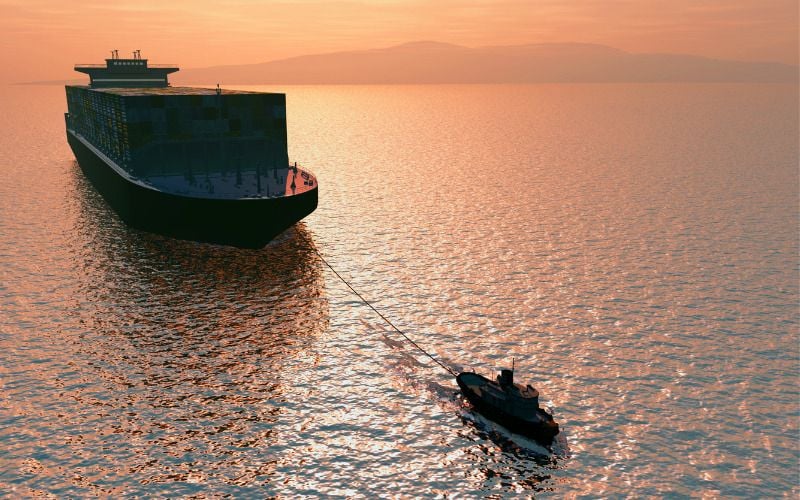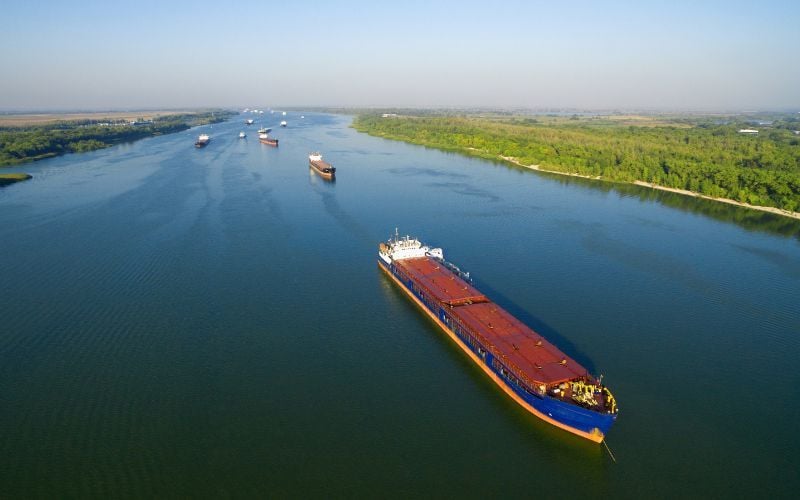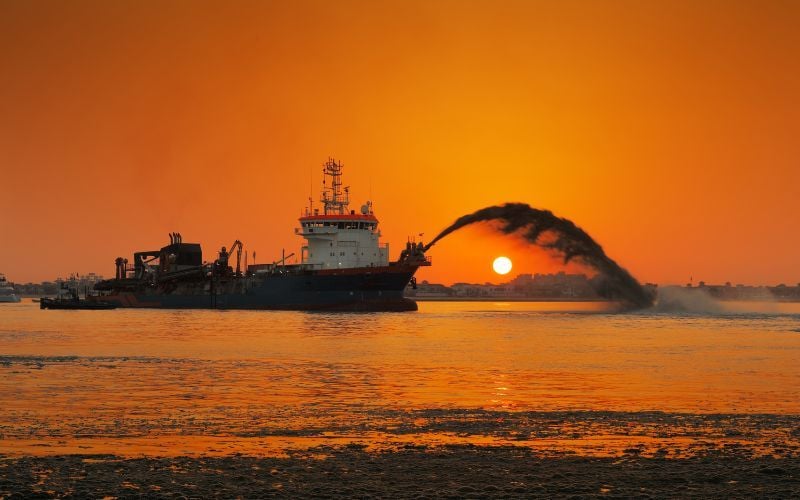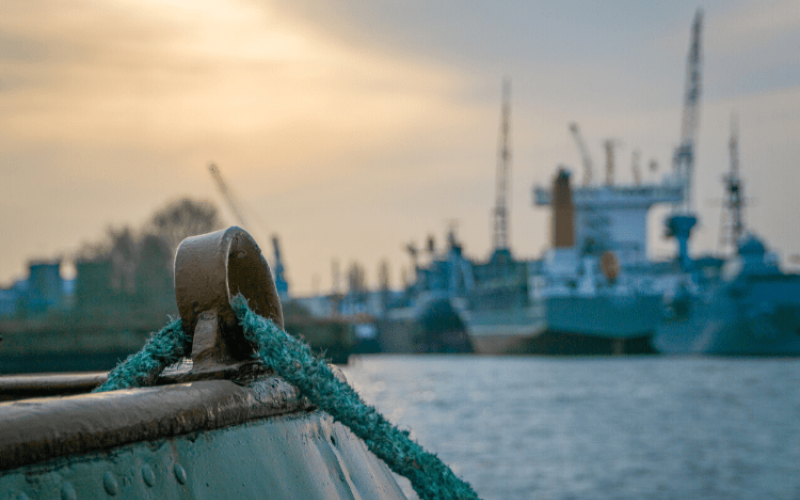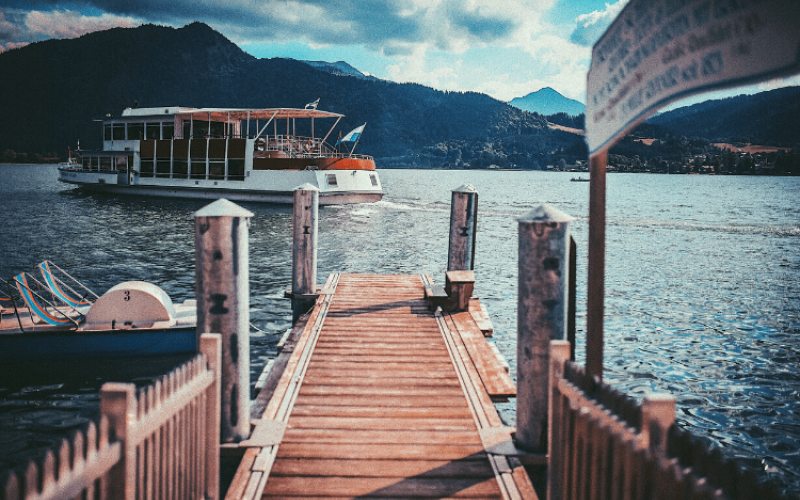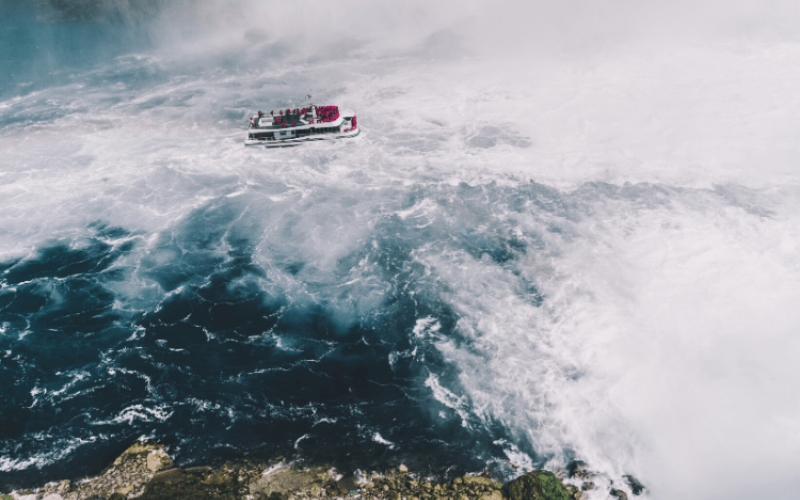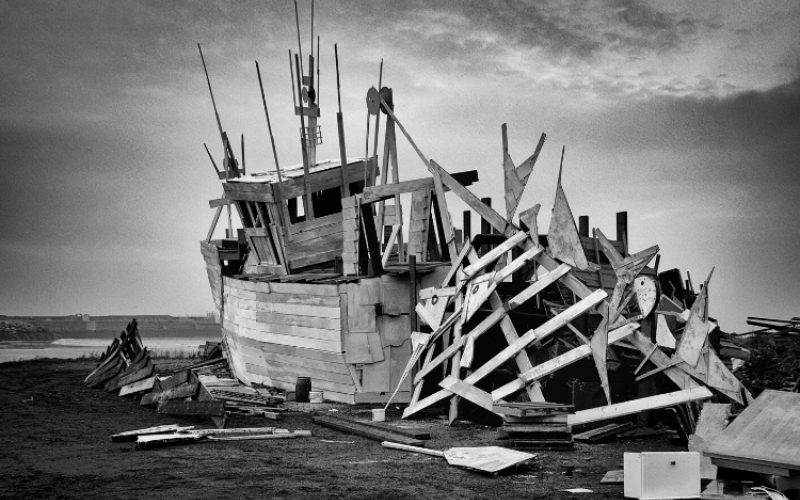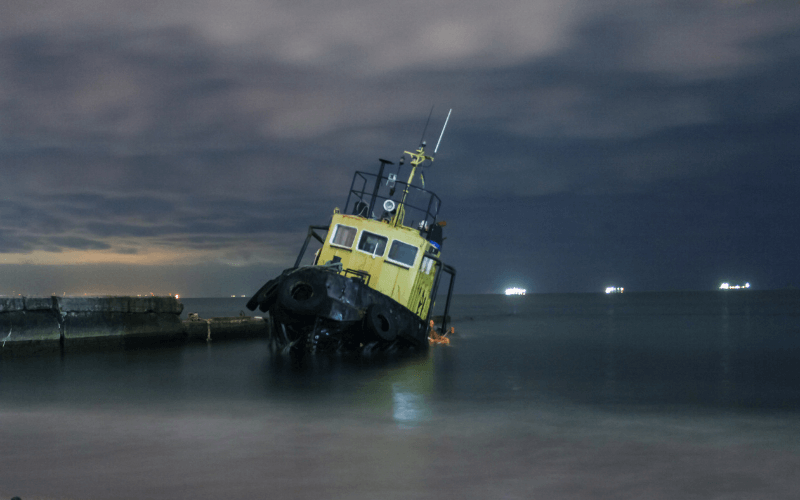Frequently Asked Questions
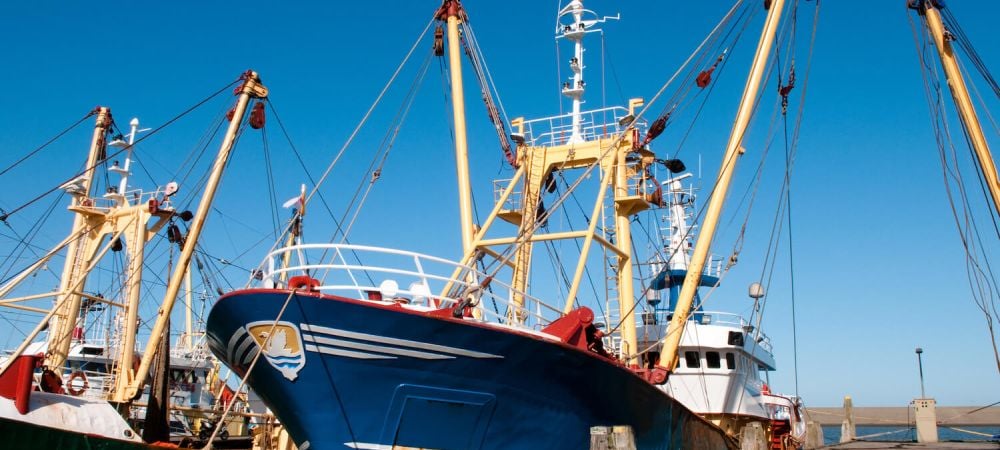
Frequently Asked Maritime Injury Questions
If you’ve been injured in a work-related maritime accident, there are several things you should do to preserve your claim for compensation under maritime law:
- Report your Injury – Seaman must report a work-related injury to their employer within seven days of its occurrence. However, it’s best to report the injury as soon as possible.
- Seek medical care – It’s important to get appropriate medical treatment and follow-up care for any injury. Injured seamen have a right to choose their own doctor following a Jones Act injury — you don’t need to go to your employer’s preferred doctor, or one recommended by your employer’s insurance company.
- Be wary of signing documents – Your employer will likely ask you to prepare an accident reporting, detailing how your injury occurred and who was at fault. You aren’t required to complete a report before becoming eligible for damages under the Jones Act. It’s important you consider getting sound legal advice before submitting any reports or documents requested by your employer or their insurance company.
- Talk to a maritime attorney – A qualified maritime attorney will guide you through the legal options available to you and can help you file an injury claim. An attorney can also help you claim any benefits you’re entitled to, such as Maintenance and Cure. Consultations and case evaluations with attorneys are usually free.
As an injured maritime worker, you have rights. You have the right to an attorney. You have the right to seek medical treatment and to have your medical expenses covered. But most importantly, you have the right to recover compensation for your injuries.
To learn more about your legal rights, it’s important you speak to an experienced maritime attorney who can review your case, advise you on your available legal options, and help you determine your next steps. Don’t hesitate to get the help you need! Your first appointment with a maritime attorney will generally be free.
Regardless of whether you were injured while working on a cargo ship, tug, barge, or dredge, or while working at a marine terminal or away at sea, you can trust our attorneys for the legal representation you deserve.
At Montagna Maritime Law, we have successfully fought for the rights of thousands of injured workers for over 50 years. We regularly represent crews aboard tugs, barges, dredges, container ships, and fishing vessels, including members of the International Longshoremen Association, Master Mates and Pilots Union, National Maritime Union, and the Seafarers International Union of North America.
Request your free case evaluation today so you can get the legal advice you need from a knowledgeable maritime lawyer without worrying about up front costs.
The death of a loved one in a work-related accident can have devastating consequences for surviving family members. When the death is due to negligence or unseaworthiness, the sense of injustice is magnified.
While no amount of compensation will ever make up the loss of a loved one, it’s still important to hold the responsible person or company accountable for their negligence. Doing so can bring a sense of closure to families, help prevent the same tragedy from happening to others, and help surviving family members obtain important compensation after the loss of the family’s breadwinner.
In maritime law, wrongful death claims can be pursued under the Death on the High Seas Act (DOHSA), which was created to help provide for families who lose a loved one as a result of an injury at sea. The Longshore and Harbor Workers’ Compensation Act also provides for damages due to wrongful death.
If a loved one has died as a result of a work-related maritime accident, it’s important that you speak to an attorney at Montagna Maritime Law who can inform you and your family of your rights, and what avenues are available so you can pursue legal action for your loved one’s death.
Visit the Seaman Injury page
The term “statute of limitations” refers to the maximum amount of time after an injury happens within which you can file a lawsuit.
Claims filed for maritime injuries under the Jones Act must be done within three years from the time of the accident, or three years from the time the accident occurred that led to the injuries.
Under the Longshore Harbor and Workers’ Compensation Act (LHWCA), maritime workers have one year from the time of the accident to file an injury claim. However, if the employer is paying compensation and medical benefits after the injury, that one-year statute begins when the benefits stop.
The Death on the High Seas Act gives the families of victims who die at sea three years from the date of the death to file a wrongful death claim.
For Maintenance and Cure claims, which fall under general maritime law, the statute of limitations is typically three years. However, there are situations that might make the statute of limitations shorter or longer, which is why it’s crucial that you speak to a maritime attorney well before the three years has lapsed.
If you or a loved one has been injured in a work-related maritime accident, it’s important that you don’t waste time in contacting a maritime attorney. The sooner you speak to an attorney to assess your case, the sooner your attorney can start preserving important evidence related to your accident that will assist your compensation claim.
Speaking to an attorney at Montagna Maritime Law is free.
When you’ve suffered a serious injury at work, we understand that it can be a stressful and difficult time. That’s why we offer free case evaluations so you can get the legal advice you need without worrying about up-front costs.
When you contact Montagna Maritime Law for your free case evaluation, you can trust that you’ll speak with an experienced attorney who understands the complexities of maritime law, has extensive experience working with seamen like yourself, and knows how to get results.
We work on a no win, no fee basis. This means we will answer any questions you may have about your case and explain how we work, and cover the cost of any experts needed to assist in investigating your case, no matter how long it takes to resolve your case.
Our attorneys take pride in getting to know clients and learning about your case. We believe it’s important for you to know us, too. As a small firm with a reputation for delivering big results, our attorneys have dedicated their legal careers to helping maritime workers up and down the East Coast successfully recover compensation for their claims.
After meeting with our attorneys to discuss your case, you’re under no obligation to engage us as your legal representation.
While some law firms handle cases for hundreds of clients at a time, we do things differently. We handle each case personally, working with clients one-on-one. No matter what type of accident you’ve been involved in or injury you’ve suffered, we will take the time to understand every detail of your case so we can build a solid and successful legal strategy on your behalf.
Contact us today for your free case evaluation to discuss your legal options with an experienced maritime attorney, at no cost. We’re available via phone, email, or in person.
We often get asked “how much can I claim in compensation?” or “what is the average payout for compensation?”
The truth is, these are impossible questions to answer as every case is different and your personal circumstances will determine the amount of compensation you are able to recover.
Factors that will influence how much you can claim in damages include:
- Was your employer negligent? Can you prove it?
- Was the vessel unseaworthy? Can you prove it?
- How serious are your injuries?
- How much have you lost in wages?
- Will you be able to recover enough to work again?
If you qualify as a Jones Act seaman, you are entitled to Maintenance and Cure benefits. Maintenance and Cure is a basic right of all Jones Act seamen. If you’ve suffered a work-related injury, your employer must pay your general living expenses (maintenance) to replace lost wages, as well as all medical expenses (cure).
If you’ve been injured in a work-related maritime accident and you want to know how much you could recover in compensation, it’s important that you speak to an experienced maritime attorney who can assess your case and help you determine the value of your claim.
Maritime law is complex. It combines modern legislation, centuries-old doctrines, common law, private contracts, international treaties and more into a set of interdependent legal rules. Even in coastal cities, most personal injury lawyers are not proficient in admiralty law and won’t accept maritime cases.
Every case dealing with maritime law is different and the specific laws that will apply to your case will depend on the details surrounding it, including the details of your employment, how your accident occurred, and who contributed to it. That’s why it’s important to speak to a maritime attorney who understands the nuances of maritime law if you’ve been injured in a workplace accident.
Bringing a claim under the Jones Act or the Longshore and Harbor Workers’ Compensation Act requires the skills and dedication of an experienced maritime attorney who will take the time to understand every detail of your case and build a solid and successful legal strategy on your behalf to recover maximum compensation.
While most maritime law issues fall under federal jurisdiction, some can be filed in state court or be subject to the Limitation of Liability Act. When our specialist maritime attorneys review your case, we will take many factors into considerations, many of which regular personal injury attorney may not be familiar with.
For maritime workers and their families, suffering a serious injury at work can be stressful and knowing what to do afterward can be confusing. The thought of hiring an attorney can be overwhelming, especially if you’ve never worked with one before. That’s why at Montagna Maritime Law, we work on a no win, no fee basis, so you can get the legal advice you need without worrying about up-front costs.
It’s not uncommon for insurance companies to approach workers after an injury and push for a quick settlement. While you may be tempted by their offer of financial compensation, it’s important to know that insurance companies are generally not putting your needs first — their main concern is not losing large amounts of money. So the offer they present you will likely be well below what you could recover in court.
That’s why it’s important to speak to an experienced maritime lawyer who can assess your case and help you determine the value of your claim so you can get a more realistic estimate of what damages you could receive.
A qualified maritime attorney will guide you through the legal options available to you and can help you file an injury claim. When you’ve suffered a serious injury at work, we understand that it can be a stressful and difficult time. That’s why we offer free case evaluations so you can get the legal advice you need without worrying about up-front costs.
In short: no.
When you speak to an attorney at Montagna Maritime Law, you can trust that anything discussed during your appointment will remain 100 percent confidential. Our attorneys are ethically bound by attorney-client privilege, so your employer won’t know that you have spoken to an attorney unless you tell them.
After an injury, it’s important that you seek legal advice sooner rather than later. You have the right to an attorney. You have the right to seek medical treatment and to have your medical expenses covered. But most importantly, you have the right to recover the compensation you deserve for your injuries.
To learn more about your legal rights, it’s important that you speak to an experienced maritime attorney who can review your case, advise you on your available legal options, and help you determine your next steps. Don’t hesitate to get the help you need — you won’t get into trouble for talking to a lawyer because it’s your legal right.
We handle every case we work on personally, dealing with clients one-on-one. No matter what type of accident you’ve been involved in or injury you’ve suffered, we will take the time to understand every detail of your case and get to know you and your concerns. We believe it’s important for you to know us, too.
As a small firm with a reputation for delivering big results, our attorneys have dedicated their legal careers to helping maritime workers up and down the East Coast hold negligent employers to account and successfully recover compensation for their injuries.
The main differences between the Jones Act, the Longshore and Harbor Workers’ Compensation Act (LHWCA) and state worker’ compensation is that:
- The Jones Act applies to “seamen”
- The LHWCA covers other maritime workers, such as those who work on docks and marine terminals
- State workers’ compensation applies to those who are typically employed in land-based jobs
Under the Jones Act, seamen may pursue three different avenues for damages under federal law:
- Negligence: Injured seamen are entitled to sue his or her employer for negligence under the Jones Act. To make a negligence claim, injured seamen must prove some negligence by the employer, and that the employer’s negligence contributed to their injuries.
- Unseaworthiness: Any member of the crew of the vessel who has been injured by an unseaworthy ship can make claim under the federal maritime doctrine of unseaworthiness.
- Maintenance and Cure: If you’ve suffered a seaman injury, your employer must pay your general living expenses (maintenance) to replace lost wages, as well as all medical expenses (cure).
Under the LWHCA, injured maritime workers are entitled to temporary compensation benefits of two-thirds of their average weekly wage while undergoing medical treatment, and can then recover either a schedule award for injury or two-thirds of the workers’ loss of wages, or wage earning capacity.
More specifically, the LHWCA entitles workers to reasonable and necessary medical expenses and indemnity benefits. There are four categories of disability benefits: temporary total, temporary partial, permanent total, and permanent partial.
Under most state workers’ compensation laws, benefits cap out at 60% of a workers’ average weekly wage for the past 52 weeks. In addition, state workers’ compensation programs typically don’t allow workers to obtain permanent partial disability benefits, instead, establishing a fixed period of time during which benefits will be paid.
Injured maritime workers can often choose to pursue benefits under the LHWCA or to seek damages under state workers’ compensation programs. However, you can’t collect under both schemes.
Visit the Maritime Law page
Visit the Claims of Unseaworthiness page
Visit the Maintenance and Cure page
If you’ve been injured while working at sea or you’ve been struck by an illness, you’re entitled to receive Maintenance and Cure payments until you reach a point of maximum medical improvement (MMI). MMI is the point when your condition can no longer be improved by further medical care.
Generally, when a doctor thinks that a patient is at MMI, the seaman will be discharged from care and the maintenance and cure benefits will stop. The seaman may not have fully recovered from the injury, but their condition isn’t expected to improve any further.
Employers are obligated under maritime law to pay maintenance and cure benefits to injured or ill crew. This is an accepted and well-established part of general maritime law. In fact, the law is clear about the rights of injured or sick seamen to maintenance and cure, regardless of what caused the injury or who is at fault.
Free and Confidential Evaluation of Your Case
If you would like to find out more about your legal rights after suffering an injury at work, take advantage of our free consultation. You can learn more about what benefits you may be entitled to and how our experienced maritime attorneys can help. We handle all our cases on a no win, no fee basis, which means you will pay attorney fees only if we are successful in getting you compensation.
"*" indicates required fields



